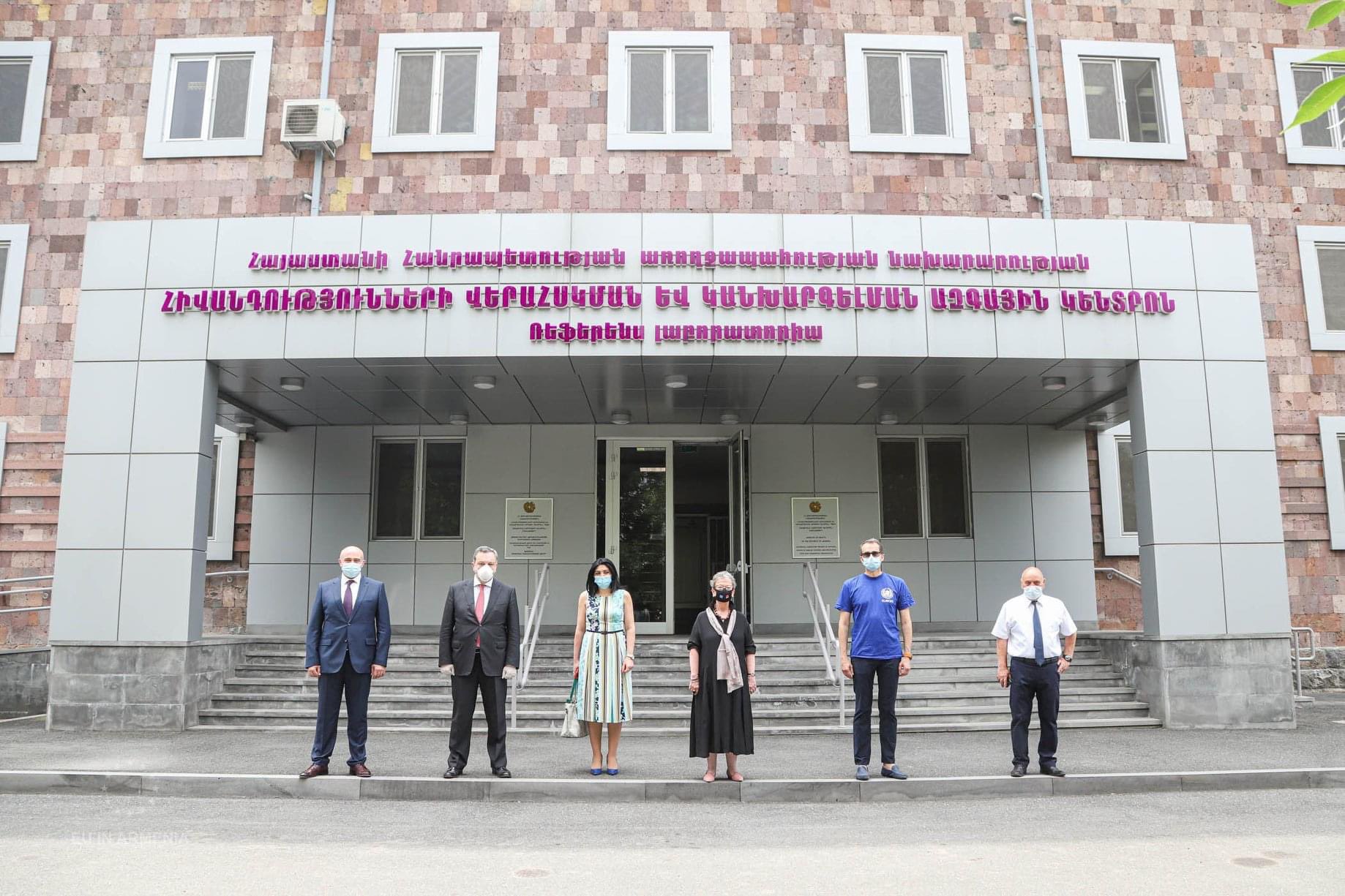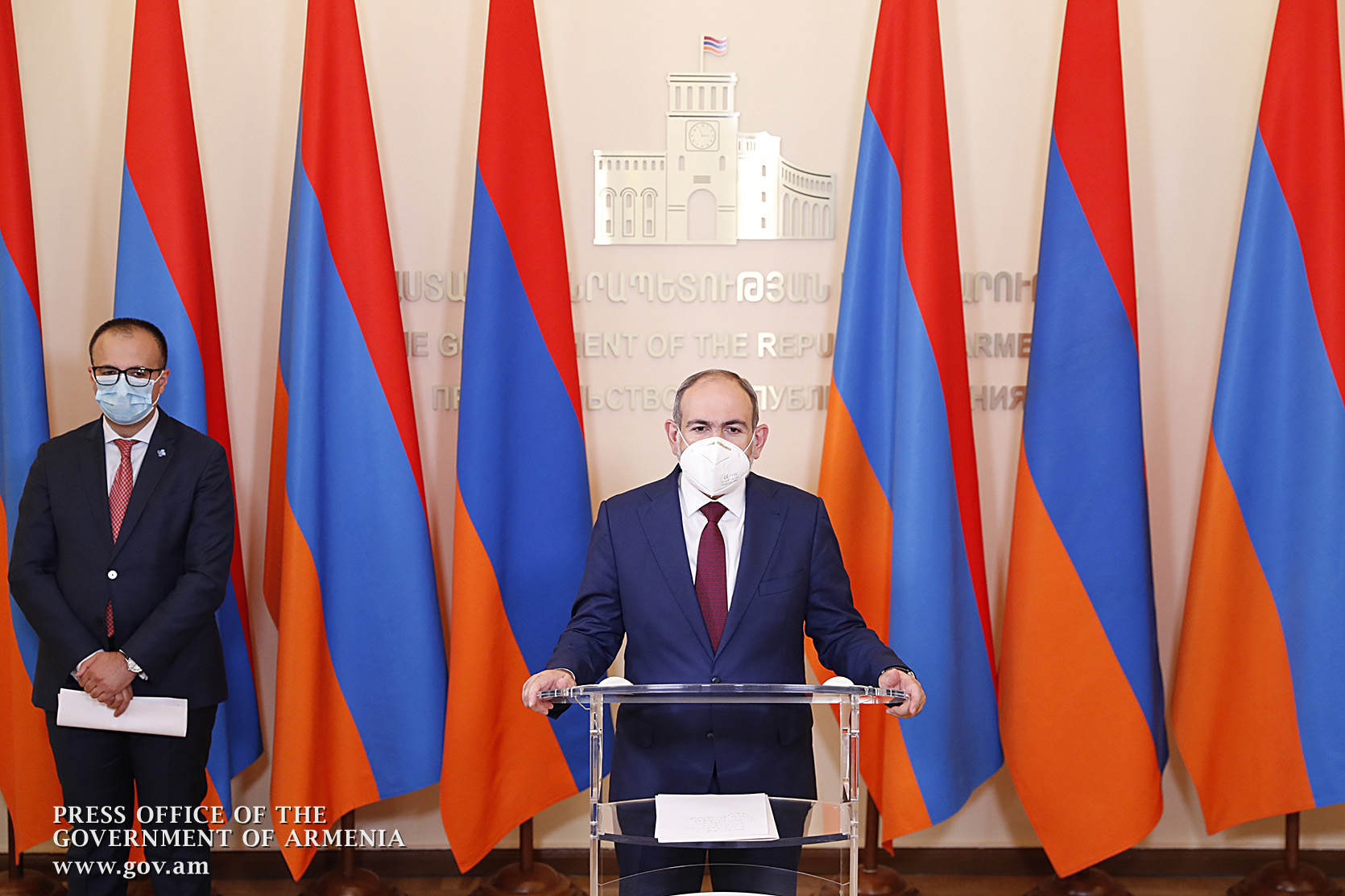
YEREVAN—Armenia, which has been hard hit by the pandemic, recently received a large batch of COVID-19 tests, procured by the World Health Organization (WHO) with the financial support of the European Union (EU).
The July 1st shipment of 10-thousand tests is part of a larger effort to help boost the country’s response to the ongoing pandemic. The country has recently witnessed a relative slow down in the spread of the contagion over the previous five weeks. Prime Minister Nikol Pashinyan called the situation “relatively stable” during a Monday briefing, while continuously urging citizens to take personal responsibility and abide by the safety guidelines.
While the number of new cases has remained at around 500 per day in recent weeks, increased testing capabilities are playing an important role in gauging the depth of the epidemiological situation in the country. With the first domestically-produced PCR testing kits beginning to enter service, Armenia is expected to boost the number of daily tests from an average of 2,500 a day to over 4,000. Health Minister Arsen Torosyan says increasing the testing capacity is of “critical importance.” Torosyan noted that Armenia acquired 80-thousand PCR tests since the crisis began, while 60-thousand were donated. Currently, 100-thousand tests are being produced in the country. As Armenian health services await more laboratories to come online to speed up the analysis of test results, they have to rely on foreign imports, such as the shipment provided by the EU.

This batch of PCR tests, delivered personally by EU Ambassador Andrea Wiktorin, along with her WHO homologue, Egor Zaitsev, to Yerevan’s main CDC laboratory is part of a wider effort by the EU to provide vital assistance to Armenia. Ten days earlier, a group of experts from Lithuania and Italy—also co-financed by the EU and the WHO—arrived in Yerevan “to help scale up the response in the country” according to an EU press release on the matter. The EU has provided an assistance package to its “Eastern Partnership” (an EU initiative bringing together six post-soviet Eastern European Partners including Armenia) to the tune of €30 million ($34 million). The EU has also earmarked an overall fund worth €92 million ($105 million) to Armenia to support immediate and short-term needs.
#26giugno Partito team italiano composto da sanitari piemontesi, lombardi e toscani per aiutare l’Armenia colpita dal #Coronavirus. La missione nasce nell’ambito del Meccanismo europeo di #ProtezioneCivile, la rete di strutture di assistenza di cui fa parte anche il nostro Paese. pic.twitter.com/Qem1HrP7JU
— Dipartimento Protezione Civile (@DPCgov) June 26, 2020
According to the EU delegation office in Yerevan, these funds initially will be used to “meet immediate emergency needs, such as procuring critical supplies for health-care workers, frontline responders and patients.” However, the EU’s assistance package also includes longer-term provisions designed to assist Armenia’s socio-economic mitigation efforts and to strengthen its economic recovery.
One such initiative has been implemented under the EU4Business program, the EU’s Small and Medium-sized Enterprises (SMEs) support network for the Eastern Partnership. Since the crisis began, EU4Business has engaged with local Armenian companies in an advisory role, providing sectoral education programs, online training and putting them in contact with expert consultants. The organization has also been working with several of Armenia’s largest banks, including Credit Agricole and Ameriabank to provide special credit terms and grants for SMEs, particularly those involved in green technology. In addition, the EU has mobilized its major de-risking instrument, the European Fund for Sustainable Development, worth a total of €1.55 billion, with €500 million being made available for the EU’s neighborhood.
In some cases, the EU’s support for the medical efforts and small business growth have actually coincided. One local small business, the Art Food catering service—which is a recipient of EU4Business assistance—has since been hired to provide meals to over 1,500 self-isolating COVID-19 patients.
European policymakers have long considered the Eastern Partnership program a pivotal aspect of the EU’s larger European Neighborhood Policy—a foreign relations instrument designed to encourage geo-political stability in the countries to the east and south of EU borders by fostering regional trade, democratization and human rights. The COVID-19 crisis has been interpreted in Brussels as a crucial opportunity to reassert the EU’s engagement with its Eastern Partners, which includes Armenia, in the hopes of mitigating the economic repercussion brought on by the expensive public health efforts to contain the virus there as well as the larger global recession.
Of course, the EU hasn’t been alone in providing medical and economic support to Armenia during the crisis. The United States—despite currently tackling the largest outbreak on the planet—has provided a relatively modest $1.1 million aid package for Armenia’s containment efforts. Additional US assistance is also expected to help boost the country’s laboratory preparedness and case-finding efforts. The Russian Federation has, for its part, provided a mobile laboratory and sent its own experts to Armenia to help.
Despite the international assistance to tackle the pandemic, Armenia remains the most heavily affected country in the South Caucasus. Armenia has registered a total of 29,820 cases since the pandemic first reached its borders on the 1st of March—11,708 of which are still active. So far, 521 people have died. Over 17-thousand have recovered from the condition. Still, despite modest improvements in the epidemiological situation, Armenia has yet to make the European Union’s “safe countries” travel list, in contrast to neighboring Georgia which has witnessed one of the smallest outbreaks in the world.


Be the first to comment